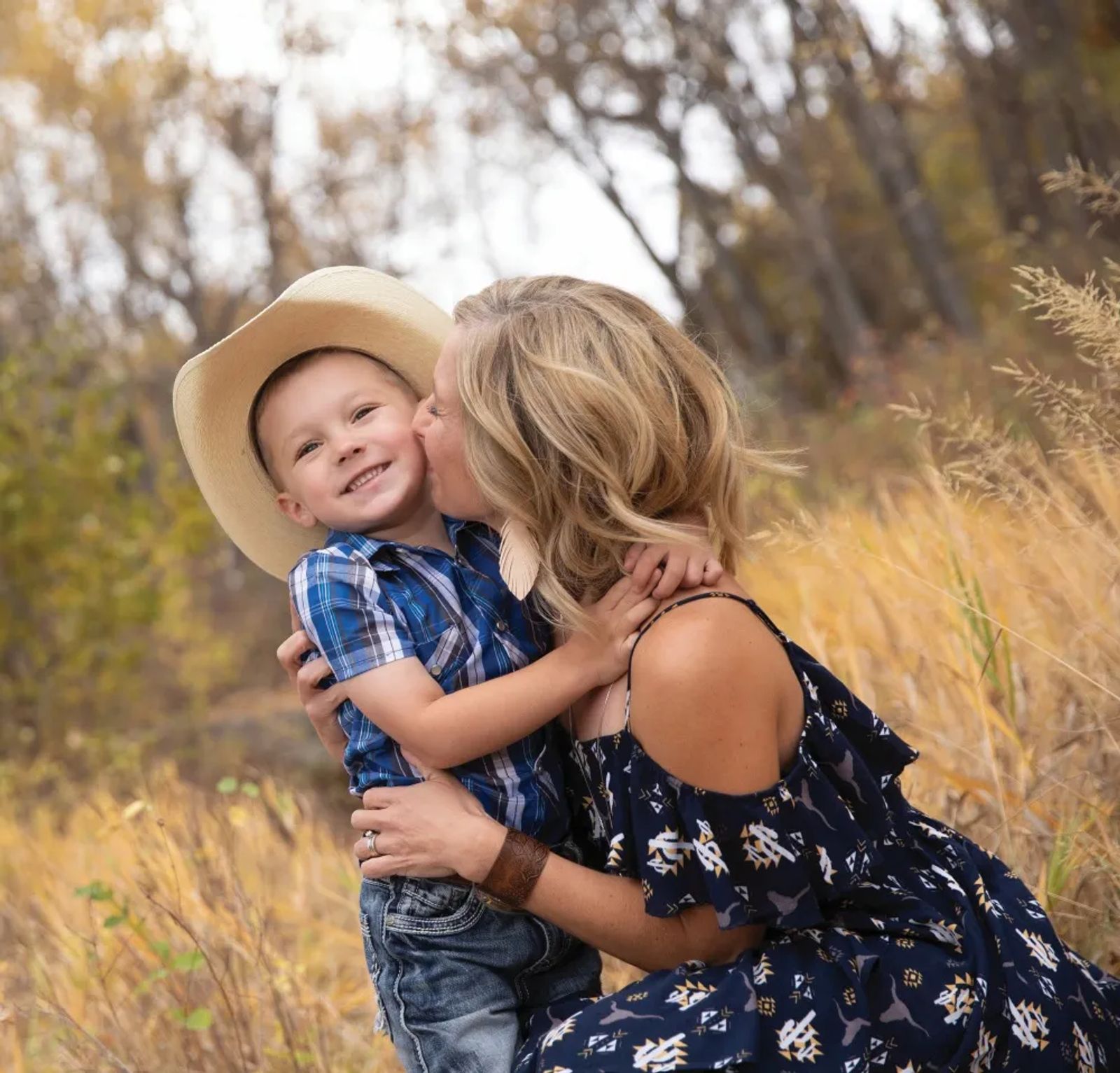
Social & Emotional Preparation for Preschoolers
February 2021 | by anna rogers
At every stage in the parenting game, we’re preparing our little ones to face the world. It is one of the greatest gifts we can give – steadied minds, strong bodies, sturdy hearts that always hold the knowledge of a home base that will be there to support them as they navigate challenges.
For toddlers and preschoolers, coping with emotion is a tough gig. Their toolbox isn’t quite filled with the communication skills and physical skills needed to handle situations on their own, and frustration easily and quickly sets in. How can we prepare these precious little hearts to be socially and emotionally grounded as they face each day?

photo by Jana Graham Photography
Practice and Expectations
Before your preschooler is ready to say, "Put me in, coach!" they need the benefit of lots of practice and communicated expectations. Run through scenarios at home and incorporate role-play so that children feel comfortable when they're put into a similar situation out in the real world, like having a toy taken on a playdate or being complimented by a stranger at the store.
Communicate expectations before heading into a new environment instead of in the moment:
“We’re going to the zoo, and we can show kindness to the animals by not banging on their fences or cages. That way, we won't scare them in their home!”
"We're headed to the library, and this is a place for people to read, study, and think, so we use quiet voices while inside so that we're respecting and caring for others."
"Before we get to the pool, remember that we always walk and never run around the pool. Water makes the sides of the pool slippery, and if you're running, you could slip and fall into the water."
Having these conversations before you arrive somewhere provides an opportunity for dialogue and questions and gives the child the benefit of the “why” behind the rules.
Thankful Hearts
One of my greatest goals as an adult is to have a thankful heart. A thankful heart combats all kinds of joy-stealers that try to creep in. Anxiety, fear, jealousy, anger, and self-pity can all be held at bay by gratitude and thankfulness. One of the best ways to teach a child to have a thankful heart is to model it in yourself, but there are some practical ways to breed thankfulness in young children too.
Regularly discuss what you’re grateful for with your children and ask to hear from them as well. This can be generalized (“I’m thankful for time together as a family to play!”) or specific (“What is something that happened today in preschool that you’re thankful for?”). Teach your toddler the habit of speaking thankfulness to others with a simple “thank you” any time something is given, be it a meal set down on the table or a special birthday gift. Showing gratefulness in all moments – the mundane and the extraordinary – is the best way to breed a heart that sees and appreciates the beauty in all the big AND little things.
If your child is experiencing a day full of whining and complaining, take a moment to stop whatever you're doing and be still. Hold hands, take deep breaths, give a warming smile, and practice gratitude verbally. Have your little one list something they're thankful for, and give that a moment to sink in before resuming whatever is going on.
Unrushed Time & Space
Overscheduling our preschoolers' time can be a big hindrance in their social and emotional development. Time and space to develop ideas, solutions, and confidence are essential to their eventual independence and success. If parents constantly jump in to correct, entertain, or make suggestions, little ones never get the opportunity to resolve conflict or innovate on their own.
Sarah Chatwood, Preschool Coordinator at the Montana Audubon Center’s Nature Preschool, says giving kids space to solve their own social problems is key. “I often notice social conflicts and purposefully take a few steps back to let them play out rather than immediately jumping in,” she says. “Astonishingly, our preschoolers can almost always come up with better solutions to their problems than I could have ever suggested.”
What else helps develop them emotionally and socially? "Time, time, time," Chatwood says. “As parents, we are so guilty of projecting our hopes and dreams onto our kids that we fail to meet them where they are right now. We fail to appreciate what they are learning and capable of in this moment of their lives because we are too busy looking ahead to who we want them to be and focusing on what they need to do to get to that point. Give children time to grow and learn at their own pace, see where their interests lie, and let them fully explore that interest instead of forcing them to move on to something new.” This time for development is one of the greatest gifts we can give their little hearts. Meeting them where they are enables us to challenge and teach in a beneficial and not developmentally inappropriate or, worse, detrimental way.
Responsive Interaction
While we give young children the time and space to develop, we should also carve out time for responsive interactions with them to listen and engage. Conversation that isn't scripted is crucial to fully know, understand, and guide your child. Ask questions, and explore the answers together. Listen to ideas and play them out together. Absorb their questions about the world around them and engage in a dialogue that expounds on their interests. The words they hear are key to their learning, but it's more than just the words teaching our children – it's the interactions.
“Interactions are where words and relationships meet. It’s both the art and the science of teaching," says Amanda Morgan, an educator, and writer, who focuses on early childhood development. "Consistency and responsiveness are key components of healthy relationships and powerful interactions.”
If we can harness this consistency and responsiveness in our interactions with our preschoolers, we will envelop them with the love and preparedness they need to face the social and emotional challenges of the world around them.
Originally printed in the February 2021 issue of Simply Local Magazine
Never miss an issue, check out SLM's digital editions here!





